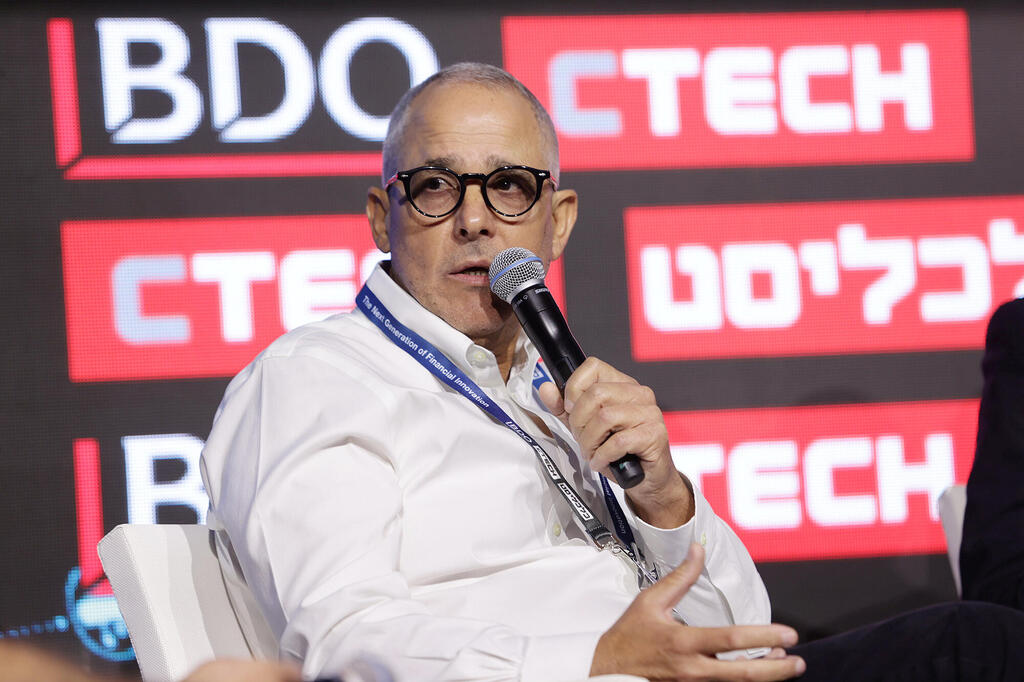
"The non-bank credit market makes a lot of noise, but in reality, it is very small”
Yuval Gavish, Chairman at Ampa Capital, was speaking on a panel of experts at Calcalist’s Financial Innovation conference in Tel Aviv
"The non-bank credit market makes a lot of noise, but in reality, it is very small," said Yuval Gavish, Chairman at Ampa Capital, during a panel at Calcalist’s Financial Innovation conference in Tel Aviv. Other panelists included Sarah Kandler, Director of Corporate Finance at the Israel Securities Authority, Maor Duek, CEO of Manif Financial Services, Golan Oz, Partner at BDO Israel, and Dori Naoi, who manages the Naoi company.
"When we look at the market, we must redefine the definition of non-bank credit," Gavish continued. "This market is undergoing a shake-up after interest rates have increased fourfold, which affects the cash flows of most companies. There is essentially a dual market consisting of institutional entities on one side and the banking system on the other.
“Non-bank credit institutions make up only 2% of the credit market, which means we are only dealing with a market that reflects around 20 billion shekels out of a trillion shekels. It is an industry that needs to expand its presence, utilize fintech infrastructure and artificial intelligence, in order to be in a different state than it is today. In the future, there will be four to five leading institutions in this market. We will see it develop."
Dori, do you think there is an increased risk today?
"It is clear that there is an increase in risk," replied Naoi. "The interest rates have affected all companies. As the risk rises, so do the profit margins. Companies struggle to cope with the high interest rates. We anticipate more challenges along the way."
Sarah, how does the Israel Securities Authority view the emerging situation based on the reports of non-bank credit institutions?
"We need to compare the reports to previous years," said Kandler. "Our role is to protect investors. We felt that there was not enough information, and the existing information was not focused enough. We mainly tried to sharpen the issue of credit risk, which is central to both non-bank credit institutions and credit in general.
“We also need to understand how credit companies conduct securitization. The issue of debt rollovers - where debt is transferred to another person - is also something that investors should be aware of. These are examples of issues we highlighted with credit companies, so that investors can properly manage risks. I hope that this will enable a more accurate risk analysis. It is true that there are risks, and investors need to be aware of them."
Can we expect further developments in this field?
"The review is focusing on provisions and how they are calculated," noted Kandler. "I’m sure that once we have completed our review we will publish it."
Maor, what is needed so that the non-bank credit market can undergo significant development?
"You have to understand that there is an increase in risk," replied Duek. "Manif is not one of the largest companies in the market, but we recognize that interest rates have risen and as a result so has the risk. But even in this situation there is less liquidity in the market, and accordingly, the need for non-bank credit increases. As demand increases, so does our ability to anticipate risks. This is also an opportunity for new companies. They should consolidate with stronger companies and improve the development of their models, which will allow them to grow."
Dori, what does the credit market need?
“First and foremost, sources of funding," replied Naoi. "This is essential for the non-bank credit market. The more funding sources there are, the more the non-bank credit market will flourish. When you rely on risk in the capital market, then accessing credit becomes more expensive. If we want to develop and expand the market, we need to bring it funding sources such as public deposits.
“Take, for example, supervised credit companies regulated by the Bank of Israel. I don't understand why they are not allowed to accept deposits to compete with the banking system. In this situation, the competition is neither fair nor equitable. Everyone talks about non-bank credit companies as the future, but currently, these companies face significant barriers to growth. Their ability to raise funds is severely limited. I don't think non-bank credit companies can currently replace banks. It won't happen in the existing market structure."














